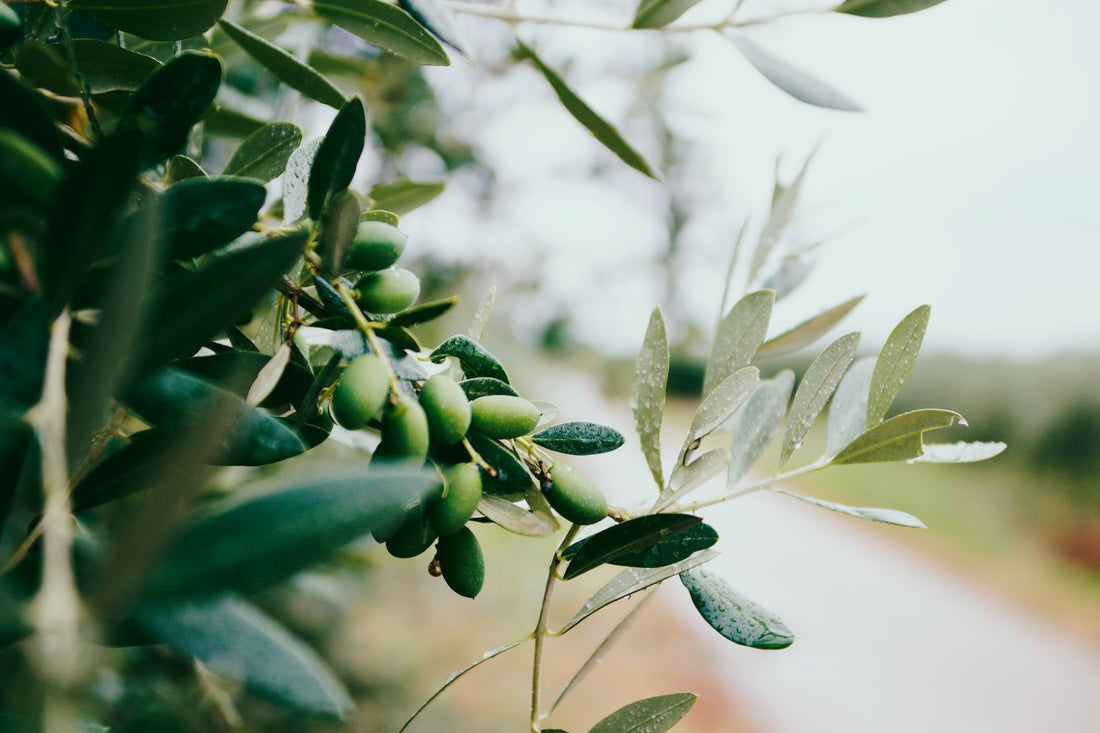
Whether you’re a keen salad dressing maker, Italian cuisine enthusiast, or just adore healthy oils with aromatic flavours, you probably use olive oil in your cooking.
But how much do you know about this popular oil? Read on to discover the answers to the most common questions about olive oil.
How many olive oils are there?
You may already know that the term ‘olive oil’ actually refers to a range of different oils, each with different properties and uses.
Extra virgin olive oil is olive oil at its purest. Produced by crushing olives without heat or chemicals, the natural flavours, antioxidants and polyphenols are preserved within the oil. However, manufacturers can’t just claim that their oil is extra virgin. It must meet high standards, both in terms of composition and taste, in order to achieve this classification.
Extra virgin olive oil is used both within cooking and cold, within salad dressings or as a standalone drizzle.
You might also see the term ‘cold pressed’ on extra virgin olive oil bottles. This refers to the fact that the oil was produced without any heat. While all extra virgin olive oils are made this way, even if the bottle doesn’t state it, many manufacturers like to make this explicit for marketing purposes
Sometimes you’ll see a bottle of olive oil labelled as ‘light’ or ‘classic’. When this is the case, the oil is usually a blend of virgin or extra virgin and refined olive oils. These olive oils tend to have a milder flavour and are used for cooking.
You can also get unfiltered olive oil, which contains natural olive pulp (which is usually removed from the oil to improve appearance and extend shelf life). Though some people prefer the stronger flavour of unfiltered olive oil, it has a shorter shelf life than filtered olive oil and should be used as fresh as possible.
Is olive oil good for you?
We all know that olive oil is a staple in the notoriously healthy Mediterranean diet, but does the science back up its health food status?
In short, yes. Extra virgin olive oil contains modest amounts of vitamins E and K, along with other healthy fatty acids and antioxidants (such as oleocanthal and oleuropein). It also contains a low amount of polyunsaturated fats — making it’s health profile even more impressive.
What’s more, evidence suggests that the fatty acids in olive oil can decrease cholesterol levels and have beneficial anti-inflammatory effects.
Keep in mind that these health claims are specific to extra virgin olive oil, which has been through less processing than standard olive oils. The more processing an oil has undergone, the fewer beneficial compounds and micronutrients it will contain.
Is it safe to have olive oil everyday?
If you’re considering switching up the cooking oils you use, you may be concerned with safety.
The good news is that it’s completely safe to use olive oil in your everyday cooking. Though olive oil contains fats, these are widely regarded as heart healthy fats. Unlike saturated and trans fats, the monounsaturated fats in olive oil are conducive to good health.
It’s also worth noting that despite its low smoking point, olive oil has been deemed safe to use for cooking at a high temperature. During high-heat cooking, polyunsaturated fats can become damaged. As olive oil contains mostly monounsaturated fatty acids (and has a low polyunsaturated fat content), it can tolerate high heats rather well.
If you’re still keen to reduce your oil use, consider using an oil mister like our Epping Oil & Vinegar Mister Set. The ideal tool for prepping food, lightly dressing salads, and even lining baking trays, this dispenser can help you control the amount of oil you use in every aspect of your cooking.
Does olive oil expire?
Unlike some cheeses and fine wines, olive oil doesn’t become better with age. At some point, all olive oils turn rancid and lose their flavour. You can expect an unopened bottle of olive oil to keep for around 18-24 months before losing its aromatic taste. Once opened, aim to use a bottle of olive oil within a few months.
As they are less processed, extra virgin oils tend to have a shorter lifespan of around 12-18 months.
Unfortunately, if you use an out of date olive oil, it will probably show in your cooking in the form of unpleasant, bitter notes. Luckily, most bottles will come stamped with a best-before date, making it easy to keep track of its age.
How to store olive oil
The longevity of a bottle of olive oil will be affected by its storage conditions, including the type of container and temperature. To protect your olive oil as much as possible, ensure you store your bottles in a cool, dark, dry place away from heat and direct sunlight.
If you like to purchase large tins of olive oil, you’ll want to limit the number of times you open the in and expose the oil to oxygen. The best thing to do is invest in a high-quality oil pourer. You’ll be able to keep some of your olive oil in your kitchen, ready to use, without having to open your tin every time you need a drizzle.
Our Ceramic Oil Pourer is perfect for keeping your oil protected from the sunlight. Plus, the cork stopper creates an excellent seal for freshness. Likewise, our stainless steel Henley Oil & Vinegar Pourer will also keep your oil safe from the sun. With a sleek carafe shape and brushed metal finish, it’s the perfect accessory for a modern kitchen.
If you like to have your olive oil on show, our Haverhill Flow Control Oil & Vinegar Pourer combines practicality and elegance for drip-free drizzling. In our opinion, it’s the ideal table-top pourer.
Whether you’re a long time olive oil advocate or recent convert, we hope you’re ready to make the most of this exquisite oil. Happy drizzling!


